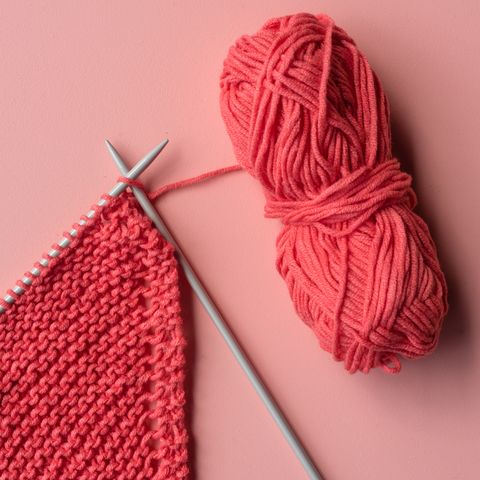How to Cope With Psoriatic Arthritis Challenges

[ad_1]
If you’re one of the 8 million Americans who has the skin condition psoriasis, you may also suffer from psoriatic arthritis (PsA)—and you know the symptoms can be far-reaching.
About 30 percent of people with psoriasis will go on to develop PsA, a chronic disease marked by stiff, inflamed joints and scaly, itchy psoriasis lesions. But psoriatic arthritis can cause other health issues, too, including fatigue, nail pitting, and eye pain. While these symptoms might seem random, they’re all caused by the underlying immune system dysfunction and inflammation (caused by proteins called cytokines) associated with PsA.
So what does that mean for you? “Depending on the severity of your arthritis, these symptoms can have a profound impact on daily life,” says Anca D. Askanase, M.D., M.P.H., a professor of medicine in the division of rheumatology at Columbia University College of Physicians & Surgeons. Your symptoms can cause pain or get in the way of your ability to do simple tasks and activities, like putting on your socks and shoes.
To help you go about your day-to-day with less pain, we’ve outlined five of the daily challenges you may face with PsA—plus, solutions for each from doctors who treat the condition.
Exhaustion and swelling can prevent you from doing the things you love.
The symptoms that tend to impact people with psoriatic arthritis the most include joint and muscle aches, fatigue (which is caused by those pesky cytokines), and a limited range of motion due to pain, explains Julie Chen, M.D., a nationally recognized integrative medicine doctor based in San Jose, CA. “It keeps people from being able to work at jobs that are more demanding, exercise, and cook healthy meals due to prep requirements. This becomes a vicious cycle since exercise and healthy meals actually calm psoriatic arthritis symptoms.”
Lessen the challenge
While it may be the last thing you want to do, low-impact exercise can help with energy levels, explains Siddharth Tambar, M.D. a board-certified rheumatologist at Chicago Arthritis and Regenerative Medicine. If your joints are swollen, consider something like swimming that keeps you off of your feet. “Inflammation in the feet can prevent you from running and walking distances,” he explains. Plus, swollen toes, sometimes called “sausage digits,” can make it hard to wear shoes and sneakers.
To make healthy meal prep a bit easier, consider buying pre-chopped fruits and veggies, or investing in some adaptive utensils and cooking tools that can improve dexterity and reduce stress on the finger joints.
Your mood could tank.
If you’re exhausted and in pain, that doesn’t just make it harder to do the activities you love, but it also can also make everyday life feel less enjoyable, says Dr. Tambar.
Not being able to exercise, prep meals, hang out with your loved ones, or do little jobs around the house can negatively impact your sense of wellbeing and contribute to mood issues such as depression or anxiety, says Dr. Chen.
Lessen the challenge
If you notice a dip in mood that’s interfering with your day-to-day, talk to your rheumatologist, suggests Dr. Chen. Mind-body support such as therapy, meditation, exercise, and guided imagery (a form of relaxation where you picture calm and peaceful images), as well as medications, can also help lift your spirits.
Sleeping well may become a struggle.
Pain related to PsA can take a toll on your sleep, adding to the fatigue that’s already common in those with PsA, explains Dr. Chen. In fact, one 2018 study found that about 68 percent of people with PsA reported poor sleep quality. Other research shows that up to 85 percent of PsA patients have pain and mood issues that impact their sleep.
Lessen the challenge
If you’re having a hard time sleeping because of pain, talk to your doctor about medications that can help. If you struggle to fall and stay asleep due to anxiety or another mood disorder, Dr. Chen recommends trying to catch more Zzs:
- Practice good sleep hygiene. Stick to a fixed wake-up time, stay off electronics in the hour leading up to bedtime, and keep your bedroom cool.
- Try meditation. Not only can this help you feel more relaxed, but it can also keep your thoughts in the present, warding off worries about the past or future.
- Get some exercise. Working out increases levels of the mood-boosting brain chemical serotonin, which plays a role in regulating your circadian rhythms.
It could be harder to do tasks that require fine motor skills.
When your joints aren’t able to move through their complete range of motion, you might find it harder (and more painful) to put on and take off your clothes, open jars, work on a knitting project, lift or reach for things, or tie your shoes. Specifically, painful and swollen hands, as well as nail and skin changes, can limit your ability to use your hands, making it harder to write, type, or cook, says Dr. Tambar. “This can be frustrating because you start to feel dependent on others to help with daily activities,” adds Dr. Chen.
Lessen the challenge
“An anti-inflammatory diet is a great way to help lower inflammation so your joints are more able to function,” says Dr Chen. “But if your joints are inflamed, consider tools such as jar openers or grip pads. Try warming up your joints and gentle stretches to help with movement, too.” A physical therapist can also teach you exercises to help with your pain. Toasty baths may ease arthritis achiness, too.
You could have a hard time seeing or concentrating.
One of the most common eye disorders associated with PsA is uveitis. It’s characterized by inflammation (redness and swelling) that occurs in the uvea, the layer and structures beneath the white of the eye. It can cause difficulty with your vision, affect your concentration, cause pain when you’re in a sunny environment, and lead to headaches. If left untreated, it can eventually worsen your vision significantly, says Dr. Tambar.
Lessen the challenge
If you think you might have uveitis, make an appointment with an ophthalmologist, suggests Dr. Tambar. “Depending on the severity, uveitis can be treated with medicated eye drops, oral medication, or even biologic medication,” she says. “If you have active psoriatic arthritis and uveitis, then medication will likely be needed.”
This content is created and maintained by a third party, and imported onto this page to help users provide their email addresses. You may be able to find more information about this and similar content at piano.io
[ad_2]
Source link








